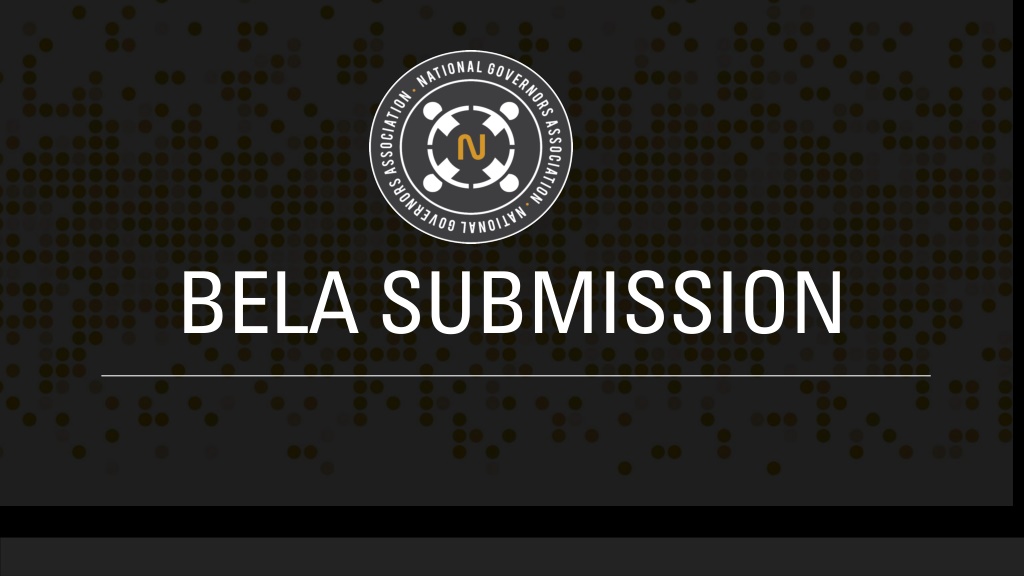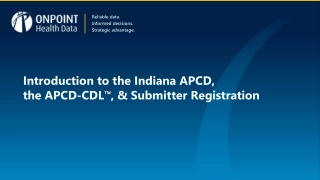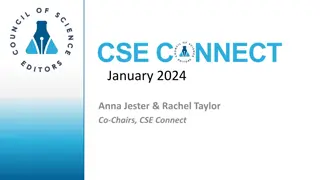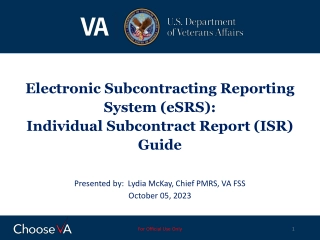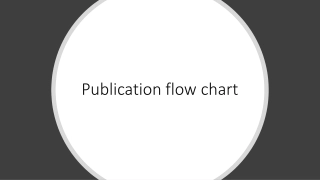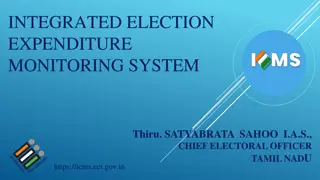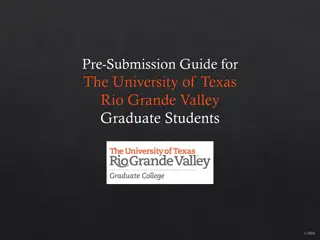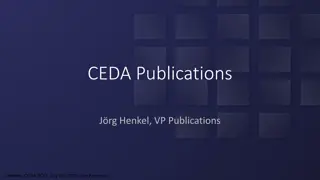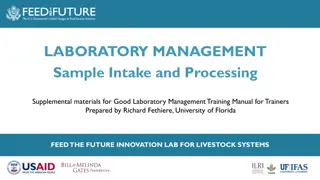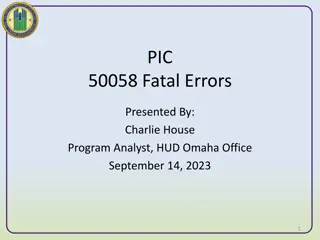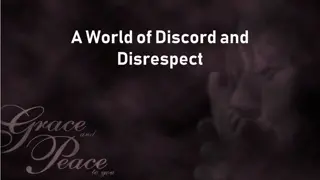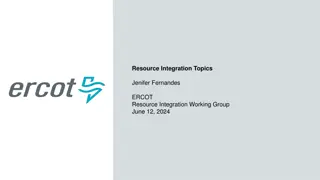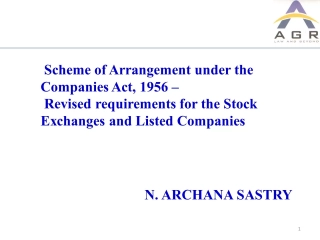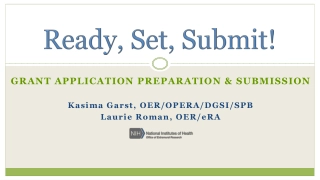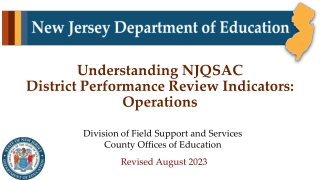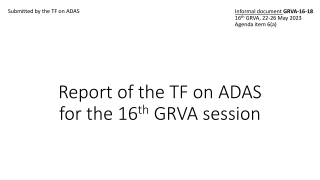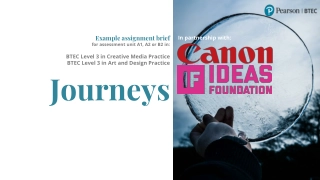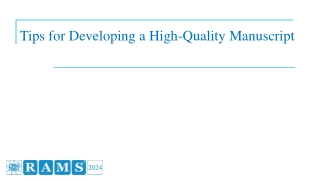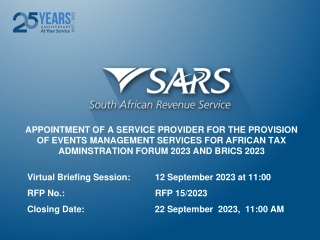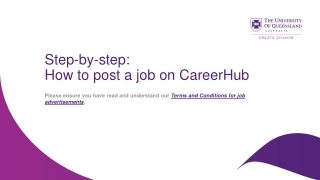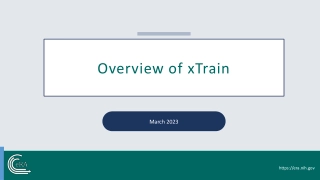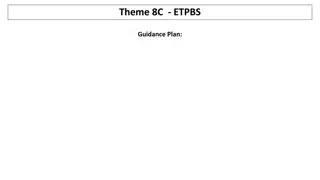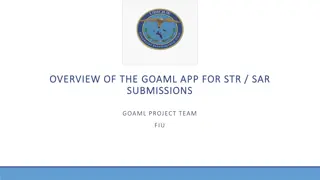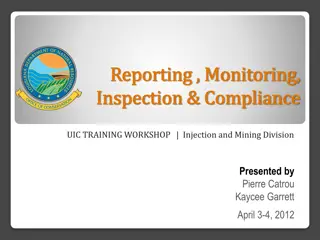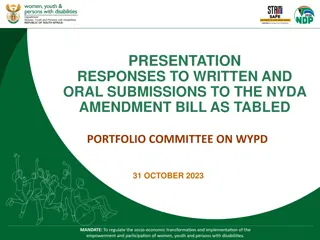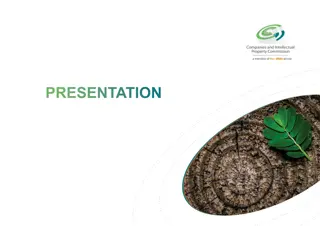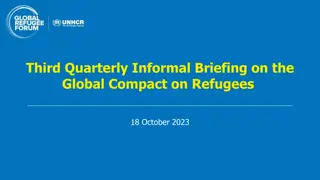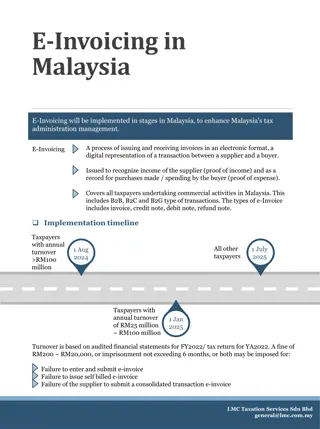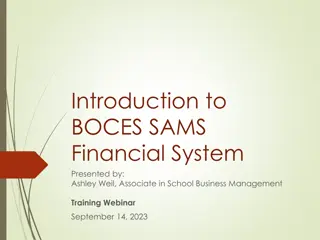BELA SUBMISSION.
Advocating for language inclusivity in South African education, the National Governors Association represents marginalized communities historically disadvantaged by apartheid policies. Supporting proposed amendments to the South African Schools Act, the NGA emphasizes the right to education in languages of choice as outlined in the constitution. The content reflects on past injustices, the country's diverse linguistic landscape, and the ongoing efforts towards a more inclusive educational system.
- Language inclusivity
- South African education
- National Governors Association
- Apartheid history
- Linguistic diversity
Download Presentation
Please find below an Image/Link to download the presentation.
The content on the website is provided AS IS for your information and personal use only. It may not be sold, licensed, or shared on other websites without obtaining consent from the author. Download presentation by click this link. If you encounter any issues during the download, it is possible that the publisher has removed the file from their server.
Presentation Transcript
INTRODUCTIONS The Honourable chairperson of the education portfolio committee and all honourable members of the portfolio committee it is indeed and honour and privilege for us to be sitting in parliament representing majority of schools governing bodies in public schools and majority of African parents on behalf of the majority population that was previously disadvantaged and marginalised by the previous apartheid education that made sure our languages are to given the same prominence like both Afrikaans and English, and also we deprived from accessing schools that are better resourced and areas that we only designed to exclude majority if African native people.
Who are The National Governors Association (NaGA) The National Governors Association (NaGA)is representing majority of public schools who were previously disadvantaged and marginalised by the previous apartheid education system that made sure our languages are to given the same prominence like both Afrikaans and English and also we deprived from accessing schools that are better resourced in areas that we only designed to exclude majority of African native people, which included most of the honourable members present here.
Section 6 of SASA NaGA endorses and supports proposed amendment of section 6 of the South African Schools Act on language policy in its totally based on the following. In the past, only English and Afrikaans were officially recognised as languages of learning and teaching. The current constitution of the Republic of South Africa, among other provisions, stipulates: Everyone has the right to receive education in the official language or languages of their choice in public educational institutions where that education is reasonably practicable. The South African Constitution is the result of remarkably detailed and inclusive negotiations that were carried out with an acute awareness of the injustices of the country s non-democratic painful past.
Preamble Opening Statement We, the people of South Africa, Recognise the injustices of our past. Honour those who suffered for justice and freedom in our land. Respect those who have worked to build and develop our country. and Believe that South Africa belongs to all who live in it, united in our diversity.
Section 6 of the Constitution States: (1) The official languages of the Republic are Sepedi, Sesotho, Setswana, siSwati, Tshivenda, Xitsonga, Afrikaans, English, isiNdebele, isiXhosa and isiZulu. (2) Recognising the historically diminished use and status of the indigenous languages of our people, the state must take practical and positive measures to elevate the status and advance the use of these languages.
Chapter 2 of the Bill of Rights Section 8 Equality (2) Equality includes the full and equal enjoyment of all rights and freedoms. To promote the achievement of equality, legislative and other measures designed. Section 29 Education (2) Everyone has the right to receive education in the official language or languages of their choice in public educational institutions where that education is reasonably practicable. (c) the need to redress the results of past racially discriminatory laws and practices.
Reality Since the advent of democracy in 1994, South Africa has undergone significant and major political, social and economic change. Education, within this broad context of transformation, has not been overlooked. Despite the many positive attributes brought about to the education system through a number of policy initiatives (Republic of South Africa [RSA], 1996a), the quality of education in South Africa remains significantly varied between what has been termed functional and dysfunctional schools Even more alarming, is that many schools have retained the legacy of both their racial and economic character depicted by the apartheid past Dysfunctional schools, categorised as those that are historically disadvantaged, continue to serve mainly black and coloured children throughout South Africa.Functional schools represent those that served mainly white children in the past. Because of the legacy of apartheid's Group Areas Act of 1950 school choice in South Africa is delineated largely in terms of race.thus questions whether parents from formerly black communities do in fact have a fair choice of schools in these neighbourhoods.
Continue Townships were designed to discriminate along racial lines as parents increasingly value the importance of education for the life opportunities of their children, so the weight of school choice intensifies. Research indicates that parents who actively choose schools are better educated, have higher levels of income and are less likely to be unemployed than non-choosing parents (Bosetti, 2004:391). The Afrikaners people whom we now live with in the suburbs that were only build for them are the ones making the biggest noise and making petitions to try and emotionally blackmailing us and try move us from dealing with the big elephant in the room.27 years into democracy and we are still trying to deal with issue of access to public schools, Yet when our children play sports, we claim to be Rainbow Nation
Brackenfell High School in Cape Town admits that the school has issues of race. Pupils submitted a memorandum of complaints and demands for action on discrimination
This is a Schools Athletics in Soweto Dobsonville Stadium this Afrikaner learners refused sit with black children on the grandstands they can only run with them
Parents accuse schools of using Afrikaans language to cover up racism The first day of school for students at Ho rskool Overvaalwas marked by protests and violence. The Afrikaans medium high school in Vereeniging has been in the spotlight after a court ruled that the school may refuse admission to 55 English-speaking learners. Gauteng Education MEC Panyaza Lesufi says his department will appeal the judgment. Parents in Limpopo have accused schools using Afrikaans as their language of instruction in the classroom to deny non-speaking learners' access to the schools and as a cover-up for their racist exclusive reasons .
BThe school has has 621 learners and claims it has no more space. The department is disputing this, stating that the school has 21 classrooms and can thus take up to 840 learners.
Our children are fighting for access to so called Afrikaners schools
Violent Brackenfell high school protest hijacked by Afrikaners parents assaulting a black parent
Black children can come in our Afrikaner schools, but must mix with our children
Conclusion The National Governors Association (NaGA) endorses and support the proposed amendment of Section 6 on Language Policy. "(2) The governing body of a public school may, subject to subsection (13), determine the language policy of the school subject to the Constitution, this Act and any applicable provincial law: Provided that the language policy of a public school must be limited to one or more of the official languages of the Republic as provided in section 6(1) of the Constitution."; "(4) [A recognised] South African Sign Language has the status of an official language for purposes of learning at a public school."
Continue "(5) The governing body must submit the language policy of a public school and any amendment thereof to the Head of Department for approval. (6) The Head of Department may approve the language policy of a public school or any amendment thereof or may return it to the governing body with such recommendations as may be necessary in the circumstances, together with reasons for such recommendations. Further propose that the governing body when submitting language policy to the Head of Department must also include the minutes of AGM with attendance where parents and learners were consulted on language policy amendments. The school must submit the demographics of the residence within the school radius
